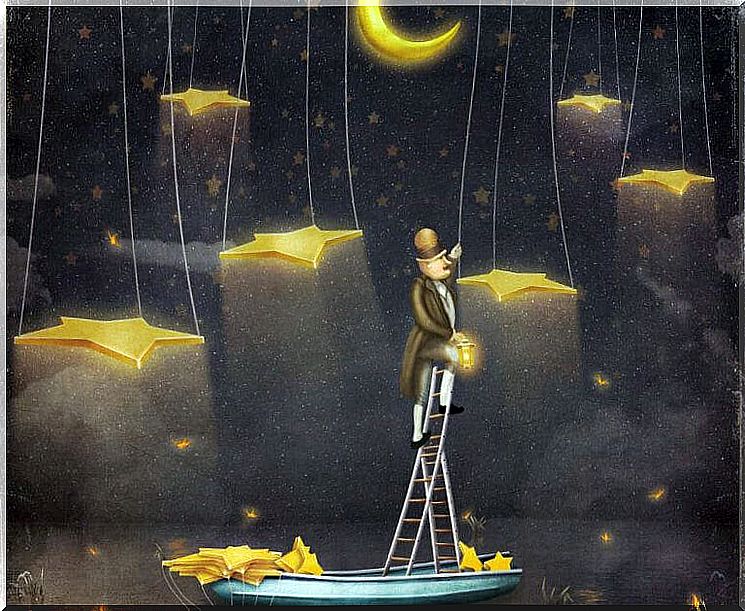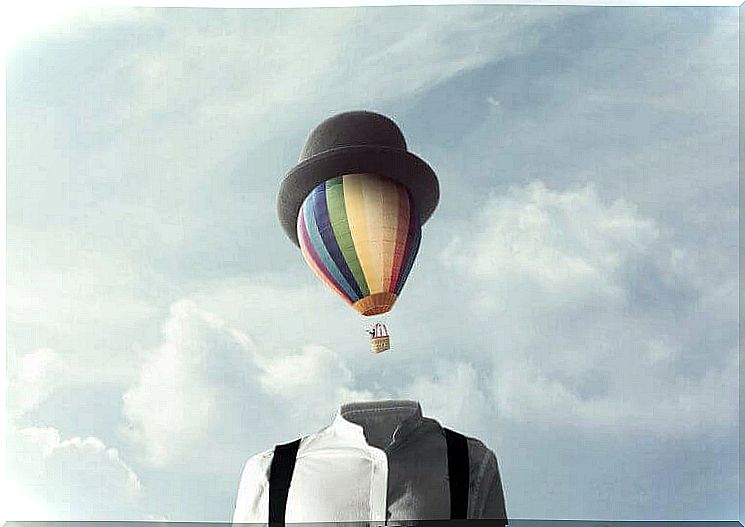What you gonna do today? The same thing I did yesterday, the same thing I will do tomorrow: whatever dictates the routine. I’ll wake up, have breakfast, get dressed, go to the subway late, miss my car, be late or just in time, meet someone, make some papers disappear from my desk and put others in their place and when it’s time from the cafe, I’m going to have a silly conversation about the last chapter of the series that broadcast yesterday on television.
I’m going out late, to speed up work a little, and when Friday comes I’ll have time to hang out with everyone. At home, things from home await me. Of course, I’m going to watch a movie and then fall into bed imagining possibilities for a life that right now lacks them. Routine, of course.
And it may be that Raphael Giordano is right and our life only really begins when we realize that she is unique. That we only realize this when we go through an experience that makes us reconsider our entire existence in just a second. A strange experience, described as magical by those who have been through it, precisely because they have the power to bring order to our priorities.
“These experiences also promote another kind of power: reminding us that the future we count on is not a certainty.”

Animals with habits
Experts say that man is an animal with habits and that there is nothing like a habit to transform the will and the way of thinking. If it is the habit that makes the monk, then he must be frequent, constant and dedicated. That collar we wear every day so as not to go undressed and wander vulnerable through life.
Both habit and habit refer to routine. An order that is repeated more or less frequently and that brings us security. Separating the doubt: provides us with well-known strategies for successfully tackling problems that commonly arise.
What’s more, the routine saves a huge amount of energy. It’s just like a computer program that runs on its own, we don’t even need to think or sketch . We’ve done it once before and we’re improving over time. For example, in the beginning, we used the bus to go to work, but one day they suspended the line and we discovered that the subway is much faster, contrary to what we had imagined. It is reality itself and also the success of our strategies that fills our agenda.
Do you imagine yourself thinking every day: What am I going to have for breakfast? How will I work? What time will I take my break? These are doubts that in our program, improved over time, are already resolved. So why create a problem where it doesn’t really exist? Why spend more resources than necessary to survive if we have a routine?
Routine: a help or a prison?
However, there may come a time, when the routine is too rigid and we don’t find times to rest, when we can feel overwhelmed. Of course, you already know this feeling.
What once helped us now turns into a prison lacking oxygen. We thought about breaking this cell, even fantasized about it, but then in reality not having a routine requires us, at least in the beginning, the effort to get out of our comfort zone. It is an ambiguous feeling of wanting and not wanting and confronting this doubt we end up always doing the same thing.
But what are the symptoms of this kind of acute routine illness? There are several: lack of motivation, feeling tired, a certain melancholy or nostalgia, mood swings, apathy, disenchantment… and this overwhelming feeling that we have everything, or almost everything, to be happy, but we are not.
We speak of this feeling of emptiness, indeterminate and uncomfortable for which we cannot clearly identify a reason. On the other hand, all the changes that we imagine, well analyzed, end up seeming a little absurd: why are we going to try again to take the bus to work if we have already verified that it takes longer? Why are we going to change breakfast if it’s good and gives us energy?
We also talk about a lack of new goals to replace what we’ve already achieved. These new goals would only be the visible part of the iceberg, what they provide us in reality is illusion. So, when new goals are lacking, it is difficult for this illusion to be present.
It may be that the oppression of routine is a minor illness or proper to people with sufficient resources who need to be concerned with superficial issues… or it may not, because it is true that when combined with other elements, such as loneliness, we realize that it is one of the most common causes why patients resort to therapy. That is, it is one of the main reasons for suffering.

Routine: yes or no?
The best way to break the routine and planning is related to improvisation. In carrying out new tasks where we anticipate what we like, but also occasionally do something we don’t like and that other people, for example, recommend us. It may surprise us, a surprise that may be the best solution to weaken the grips of the prison of which we feel imprisoned.
In this sense, there is an area of personality that brings together several models: we speak of “openness to experience”. Well then, this is the ideal area to cultivate, at least once in a while, if we don’t want the routine to feed day after day and turn into a powerful monster that ends up overcoming our strength.
Finally, we can consider that routine takes a huge energy saving, but it can also turn into a great waste when we stop dominating it and become dominated by it, when risk loses all its attraction against what is apparently safe, which we have successfully repeated countless times.
 rancha.xyz Be free to choose their own route to self-knowledge, health and balance of body and soul.
rancha.xyz Be free to choose their own route to self-knowledge, health and balance of body and soul.




